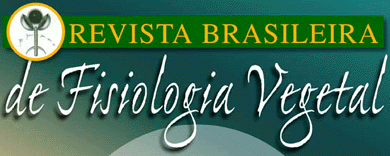The climate in the central Brazilian’s savannas ("cerrados") is characterized by well-defined dry (May to September) and wet (October to April) seasons. Like other tropical savannas, a landscape mosaic forms the Brazilian savannas where the predominance and size of woody elements varies the most. The present study compared the daily course of sap flow, stomatal conductance and leaf water potential (psi) of two evergreen species, Rapanea guianensis and Roupala montana. The measurements were taken at the end of the dry season when the effects of water deficits are more intense. These measurements were taken in an open savanna area with a predominant grass layer with superficial root system ("campo sujo") and in a woodland savanna ("cerradão"), where the increase in density of deep-rooted trees result in a larger exploitation of soil water resources in the dry season. Maximum values of psidid not differ between the two species or the two vegetation types. R. guianensis minimum values of psi were significantly lower (P<0.05) in the woodland savannas ("cerradão"). On the other hand, R. montana minimun psi did not differ between sites. Maximum values of sap flow and total daily sap flow did not differ (P > 0.05) between the "campo sujo" and the "cerradão" savannas. Maximum values of sap flow were between 0.13 and 0.22 l. h-1 for R. guianensis and 0.15 and 0.54 l. l. h-1 for R. montana. In both vegetation types the two species showed a strong stomatal control of transpiration. Sap flow typically increased sharply in the morning, briefly attained a maximum value by about 08.00-10.00h then decreased sharply despite steadily increasing solar radiation and atmospheric evaporative demand.
Rapanea guianensis; Roupala montana; transpiration; savanna; water














